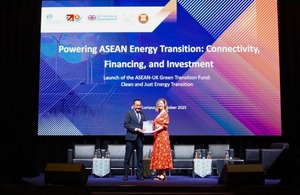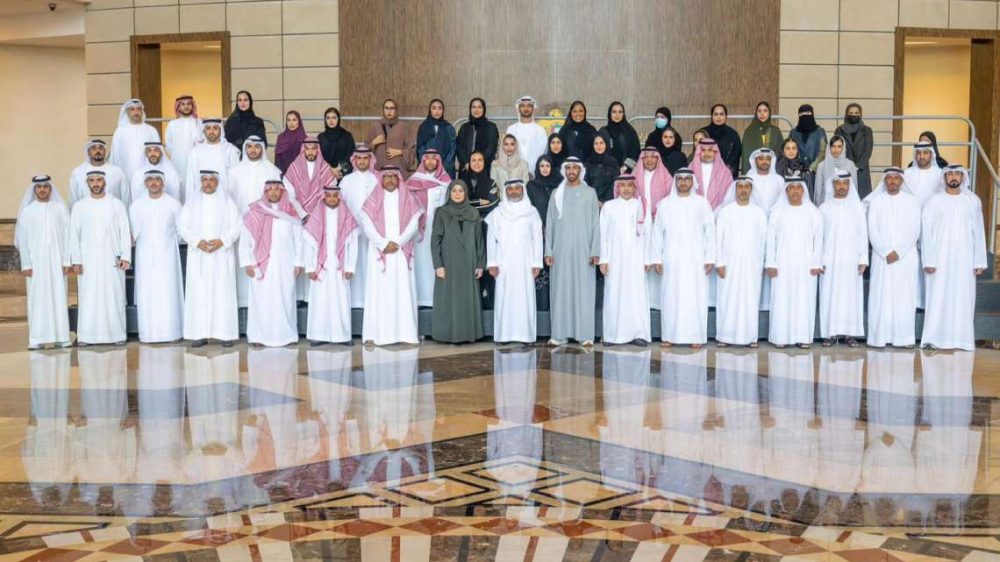Government launches formal review to fast-track Heathrow’s third runway, pledging private financing, green safeguards and a final planning decision within this Parliament…reports Asian Lite News
The government has taken a major step toward building a third runway at Heathrow Airport, with the Transport Secretary launching a review of the Airports National Policy Statement (ANPS) that will define the framework for any future expansion. The move marks the strongest signal yet that ministers intend to deliver the long-delayed project, which they say will boost economic growth, jobs and connectivity while aligning with climate goals.
Announcing the review in Parliament on Wednesday, Transport Secretary Heidi Alexander said the updated ANPS would be published for consultation by summer 2026. The process will replace the 2018 policy statement, which took five years to prepare, and will set out new environmental and planning standards that expansion proposals must meet.
“The government is one that backs the builders, not blockers,” Alexander said. “Today is a critical building block which will advance plans for the delivery of a third runway at Heathrow, meaning people can start to experience the full benefits sooner. As our only hub airport, Heathrow is critical to the UK’s economy, connecting millions of people every year and exporting British businesses across the globe. Enabling Heathrow expansion will drive economic growth and create jobs across the country, delivering on our Plan for Change.”
The review will consider four main tests that any proposed scheme must pass — climate change, noise, air quality and economic growth. The government said it would seek formal advice from the Climate Change Committee to ensure the new policy is consistent with the UK’s net zero commitments. Ministers aim for planning applications to move swiftly enough for a final decision within this Parliament, allowing flights from a third runway to begin by 2035.
The initiative follows government approval of expansion at Luton earlier this year and Gatwick last month, reflecting a broader push to get major infrastructure projects “off the ground” under its “back the builders” agenda. The government said it wants to show progress “swiftly but robustly”, balancing environmental standards with economic momentum.
Two rival promoters — Heathrow Airport Limited and the Arora Group — remain under active consideration to deliver the new runway. Both have been asked to submit further details of their proposals to clarify the likely impacts on investors, affected communities and nearby businesses. The government expects to announce by the end of November which single scheme will be taken forward to inform the rest of the ANPS review.
Once selected, any changes proposed to the policy statement will go out for consultation next summer, giving local communities and stakeholders the opportunity to comment before a final decision is made.
Chancellor of the Exchequer Rachel Reeves said the project would mark the end of “decades of false starts”. “We are backing the builders to get Heathrow’s third runway built, creating thousands of jobs, boosting growth across the UK, and making Britain the world’s best connected place to do business,” Reeves said. “This government is getting Britain building to kickstart growth and deliver an economy that works for, and rewards, working people.”
Ministers have made clear that Heathrow’s expansion must be funded entirely by the private sector, with no cost to taxpayers. Financing will come from the chosen promoter, who will also bear the costs of associated transport improvements. The government will impose strict cost controls to ensure value for money and timely delivery.
Given Heathrow’s importance to the national economy, ministers are also considering designating the expansion as critical national priority infrastructure — a move that would subject the project to enhanced security and resilience requirements.
To meet environmental commitments, the government is backing the development of green aviation fuel. The new Sustainable Aviation Fuel Bill aims to stimulate domestic production by guaranteeing a set price for producers, providing the “economic security” needed for the market to thrive. So far, £63 million has been committed to fast-tracking the construction of UK SAF plants.
A new UK Airspace Design Service will be established to modernise flight routes, alongside reforms to airport slot allocation to ensure maximum benefit for passengers and local communities at expanded airports, including Heathrow, Gatwick and Luton.
Industry reaction to the government’s announcement was broadly positive. Karen Dee, Chief Executive of AirportsUK, said: “Delivering critical national infrastructure, including airport capacity, is vital if the UK is to increase economic growth. Setting a clear policy framework and providing a predictable, cost-effective and timely approvals process will help bring forward investment, create more connectivity, and drive productivity. We look forward to working with Ministers to deliver these elements to ensure the UK can remain a world leader in aviation.”












